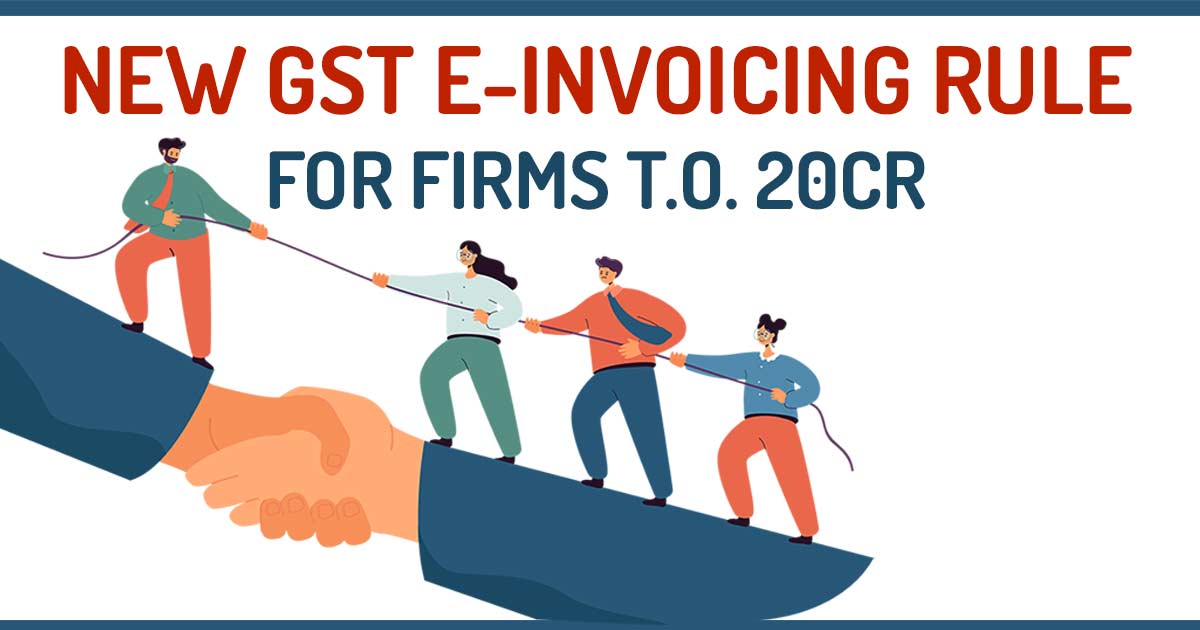
The essential electronic invoicing of business to business B2B transactions towards the firms that have a turnover exceeding Rs 20 cr would raise the GST enrollment by 75%.
The latest system which will be applicable from 1st April would add 180,000 GST identification numbers (GTINs) increasing from the current 240000 to nearly 420000.
Beneath GST law e-invoicing for B2B transactions was essentially for the firms with Rs 500 cr turnover on 1 October 2020. It was prolonged to the entities with Rs 100 cr turnover dated from 1 Jan 2021 and then towards the people who pose the turnover exceeds Rs 50 cr dated 1 April 2021.
Under the GSTIN 53,523 companies are already present dated October 2020 and 91,583 GSTINs were added in January 2021 and in April 2021 95,461 has been added and all these combined with the sum of 240,567. The bogus GST collections stand at the Rs 1.3 trillion mark for the fourth time in the January month in the year 2021-22.
“Widening the scope to cover small and medium entities will not only help expand GST coverage but plug the leakages. This will further bolster GST collections,” a government official “Currently, there are about 240,000 eligible GSTINs for over ₹50 crores annual revenue threshold. We hope to add at least 75-80% more by lowering the threshold to ₹20 crores in April. E-invoicing has helped improve compliance, which is visible in robust GST collections. It also helps prevent tax evasion.”
If the firm runs its business in two or exceeding states or UTs then it can hold more than one GSTIN. “E-invoicing allows real-time tracking of invoices prepared by a supplier, reducing the scope of frauds. The practice of evasion by small and medium enterprises will stop now,” officials stated. Urging anonymity “It will reduce the manual reporting process, thereby the scope of manipulation of invoices, and will ensure only genuine input tax credit can be claimed.”
Tax expert mentioned that “E-invoicing is the ultimate digital leapfrog for Indian businesses that have embraced digital payments so well. This will also help them comply digitally and will be a key driver for their growth.”
There are nearly 2,20,000 firms whose yearly turnover exceeds Rs 20 cr and Rs 50 cr financial institutions like insurance, banking, non-banking financial companies, goods, and passenger transportation services, except units operating in special economic zones, which are privileged from e-invoices.
Read Also: Step by Step Guide to Generate E-invoice Under GST with Benefits
The problems emailed to the spokesperson of the finance ministry and the Goods and services tax network were not being answered. The process of e-invoicing assists in rectifying rules and clears the sales reporting, minimizing glitches and mismatches, as well as automating data entry.









